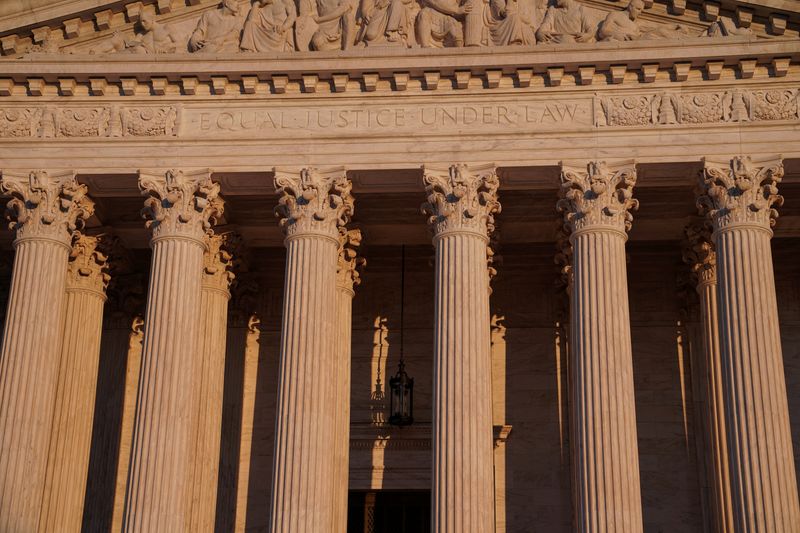By Lawrence Hurley
WASHINGTON (Reuters) - The U.S. Supreme Court ruled on Monday that the constitutional guarantee of trial by jury requires a unanimous verdict for serious crimes, siding with a Louisiana man convicted of murder and paving the way for potentially hundreds of defendants found guilty by divided juries to receive new trials.
Only two of the 50 states, Louisiana and Oregon, have permitted non-unanimous verdicts. Writing for the court in the 6-3 ruling, conservative Justice Neil Gorsuch noted that the non-unanimous verdict requirement in both states traced back to past racist policies intended to reduce the power of non-white jurors to influence the outcome of trials.
The ruling, overturning a 1972 Supreme Court precedent, means that Evangelisto Ramos, who was convicted by a 12-member jury on a 10-2 vote, is likely to get a new trial. Ramos, found guilty in the 2014 New Orleans murder of a woman named Trinece Fedison whose body was found in a trash can, was sentenced to life in prison without the possibility of parole.
The justices concluded that the U.S. Constitution's Sixth Amendment, which guarantees the right to an impartial trial, requires that jurors be unanimous to convict in serious criminal cases. Gorsuch noted that historically some minor crimes do not require a jury trial.
Louisiana updated its law to prohibit non-unanimous verdicts starting last year but that change did not apply retroactively.
The ruling could benefit hundreds of inmates convicted with non-unanimous verdicts in Louisiana and Oregon by leading to new trials.
"We are heartened that the court has held, once and for all, that the promise of the Sixth Amendment fully applies in Louisiana, rejecting any concept of second-class justice," said Ben Cohen, a lawyer for Ramos.
The office of Louisiana Attorney General Jeff Landry said in a statement that the state's priorities have not changed as a result of the ruling.
"Our law has since been changed and the Supreme Court has now issued this new ruling, yet our focus remains the same: to uphold the rule of law and protect victims of crime," the statement said.
Gorsuch said there is evidence that when the Sixth Amendment was enacted, it was assumed there must be a unanimous verdict.
"This court has repeatedly and over many years recognized that the Sixth Amendment requires unanimity," Gorsuch wrote.
Two other conservative justices, Clarence Thomas and Brett Kavanaugh, joined Gorsuch and three liberal justices - Ruth Bader Ginsburg, Stephen Breyer and Sonia Sotomayor - in the majority.
A 1972 Supreme Court ruling that state court juries did not have to be unanimous drove the divisions among the justices in the case. The majority voted to overrule that precedent, but the three dissenting justices said there was not a compelling reason to overturn it.
Writing in dissent, conservative Justice Samuel Alito wrote that the ruling "imposes a potentially crushing burden on the courts and criminal justice systems" in Louisiana and Oregon.
Liberal Justice Elena Kagan and conservative Chief Justice John Roberts also were in dissent.
How the court addresses overturning its own precedents is a topic of contention, with high stakes for abortion rights.

Abortion rights activists fear that the court's 5-4 conservative majority may seek to undermine or overturn its landmark 1973 ruling that legalized the procedure nationwide. The court is currently weighing a challenge to Louisiana abortion restrictions that could indicate which way it is heading, with a ruling due by the end of June.
